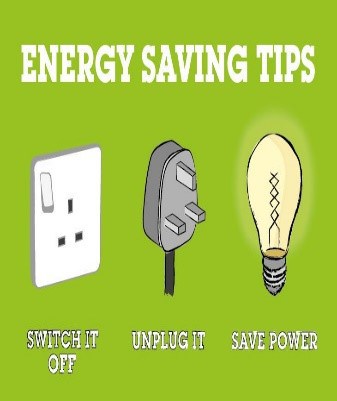Ultimate Guide for Parents: How to Save Power and Reduce Your Energy Bills
Hey there, savvy parents! Are you looking to trim down those pesky energy bills and make your home more eco-friendly? Well, you’re in for a treat! In our ultimate guide, we’ll walk you through the A to Z of saving power in a way that’s easy, effective, and even a wee bit fun. So, buckle up and get ready to transform your home into an energy-saving haven!
Understanding Your Energy Consumption
First things first, let’s get to grips with what’s chomping up all that energy. Knowledge is power – quite literally, in this case. By understanding where most of your power is going, you can target those areas and make smarter, energy-efficient choices.
- Conduct an energy audit: Many utility companies provide free audits, which can clue you in on where your home is losing energy.
- Monitor your appliances: Keep an eye on your washing machines, dryers, dishwashers, and refrigerators as they can be significant power hogs.
- Use energy tracking apps: Utilize technology to your advantage by downloading apps that monitor your home’s energy usage in real-time.
Teaching Kids About Energy Conservation
Getting your little ones involved is not just a fantastic learning opportunity but also turns saving energy into a family affair. When everyone’s on board, you’ll save power much more efficiently!
- Gamify energy saving: Make it a game! Who can turn off the most lights that aren’t in use? Can you all guess how much energy your household saved this month?
- Explain the importance: Kids love to know “why”. Explain how saving energy helps the planet and saves money for fun activities or family treats.
- Lead by example: Actions speak louder than words! Let your kids see you actively engaging in energy-saving habits, and they’ll likely follow suit.
Energy Saving Tips for Parents
In the Kitchen
The kitchen is often the heart of the home and, consequently, a hotspot for energy consumption. Here’s how you can keep things cooking without heating up your energy bill:
- Opt for energy-efficient appliances: When it’s time for an upgrade, choose ENERGY STAR appliances that use less energy and water.
- Cook smart: Use the right size pots on stove burners, cook with lids on to reduce cooking times, and embrace the wonders of pressure cooking or slow cooking.
- Refrigerator optimization: Keep those fridge coils clean and maintain a consistent temperature to ensure it runs efficiently.
Heating and Cooling Your Home
Maintaining a comfortable home temperature can be one of the biggest energy challenges. Here’s how to stay cozy without breaking the bank:
- Thermostat management: Invest in a programmable thermostat that can adjust your home’s temperature based on when you’re home or away.
- Seal leaks: Keep the warmth in and the cold out (or vice versa) by sealing any leaks in windows and doors.
- Regular maintenance: Keeping your HVAC system maintained ensures it’s running as efficiently as possible.
As we unveil more layers of our power-saving guide, you’ll discover that every bit of effort counts. From tweaking daily habits to investing in long-term changes, you’ll soon become a pro at balancing home comfort with energy conservation. Not only will you see the numbers on your energy bills plummet, but you’ll also be contributing to a healthier, happier planet for your kids and future generations to cherish.
And remember, every change begins with a single step. So, let’s keep marching forward in our quest for energy efficiency, with some nifty tricks up our sleeves and a smile on our faces, because saving power can indeed be a walk in the park!
Ready to dive deeper into the world of energy conservation? Stay tuned as we continue to explore more ingenious ways to save power in every nook and cranny of your home life!

5 Must-Know Tips for Parents Preparing to Save Power
Before we dive deep into all the fun and thrifty ways to cut back on energy usage, let’s ensure we’re geared up and ready to go. Here are five essential things every parent should know when preparing to save power:
- Assess Your Home’s Energy Profile: Before making any changes, understand your current energy footprint. Look at your past energy bills, note your highest-consuming months, and gear up for those changes.
- Involve the Whole Family: It’s a team effort! Chat with your partner and children about the importance of saving energy and discuss ways everyone can contribute.
- Plan for Upfront Costs: Some energy-saving measures might require an initial investment. Set aside a budget for things like insulation, energy-efficient appliances, or smart thermostats which will pay off over time.
- Get to Know Your Appliances: Familiarize yourself with the appliances you use most often. Understanding their energy rating and usage patterns will help you to use them more efficiently.
- Explore Incentives and Rebates: Many local governments and utility companies offer incentives, rebates, or tax credits for energy-efficient home upgrades. Look into these options to save more money on your journey to an energy-efficient home.
With these insights in hand, you’ll be well-prepared to embark on the power-saving adventure. And yes, it can be an adventure—a journey of discovery, innovation, and lots of feel-good moments as you watch your bills decrease while you do your bit for Mother Earth! ??
Into the Nitty-Gritty of Saving Power
Gearing up to save power is just the beginning. Now let’s explore all the other fantastic tips and tricks that will help you tighten up on energy waste and celebrate the wins—big and small—along the way.
Power-Saving in the Living Room
The living room is where family memories are made, and with a few tweaks, it’s also where energy savings can start:
- Lighting: Replace incandescent bulbs with LED lights which use a fraction of the power and last much longer.
- Entertainment Systems: Use power strips for your entertainment devices and turn them off completely when not in use to avoid standby power consumption.
- Window Treatments: Utilize curtains and blinds to control the temperature naturally; close them to keep out heat during summer days or to keep in warmth during chilly evenings.
Power-Saving in the Laundry Room
Since the laundry room is home to two of the most energy-intensive appliances, small changes here can lead to big savings:
- Wash with Cold Water: Heating water for laundry can consume a lot of energy. Switching to cold water for most loads can significantly reduce your power use.
- Full Loads Only: Ensure you’re running your washing machine and dryer with full loads to maximize efficiency.
- Air Dry When Possible: Take advantage of sunny days by drying clothes on a line or rack instead of using the dryer.
Power-Saving With Plumbing
Water heating and usage are often overlooked aspects of energy consumption:
- Fix Leaks: A dripping tap can waste a lot of water over time. Fix any leaks to save water and the energy used to heat it.
- Upgrade Fixtures: Low-flow showerheads and faucets reduce water usage, which in turn saves energy needed for heating water.
- Insulate Pipes: Insulating hot water pipes prevents heat loss and can deliver hot water more efficiently.
Embracing even a handful of these ideas can lead to significant savings on your energy bills, and they’re just the tip of the iceberg! With this guide in hand, you’re well on your way to becoming an energy-saving superhero. Your wallet—and the planet—will thank you. Happy saving!
See more great Things to Do with Kids in New Zealand here. For more information see here
Disclaimer
The articles available via our website provide general information only and we strongly urge readers to exercise caution and conduct their own thorough research and fact-checking. The information presented should not be taken as absolute truth, and, to the maximum extent permitted by law, we will not be held liable for any inaccuracies or errors in the content. It is essential for individuals to independently verify and validate the information before making any decisions or taking any actions based on the articles.




